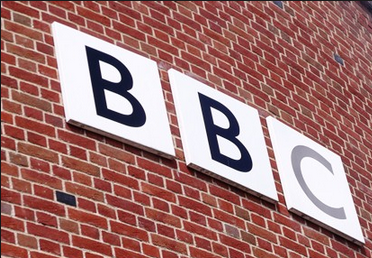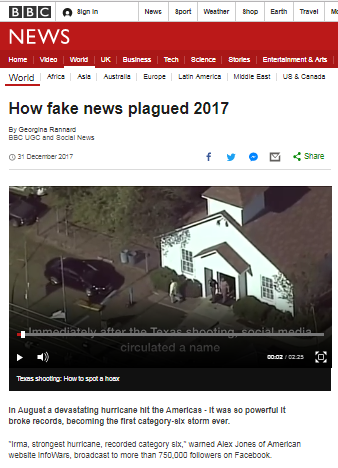As we recently observed, the BBC’s coverage of the launch of the US Administration’s ‘Peace to Prosperity’ proposals once again provided no shortage of examples of the corporation’s one-dimensional portrayal of supposed Palestinian aspirations.
Does BBCsplaining of Palestinian aspirations stand up to scrutiny?
While BBC audiences are no doubt able to recite by heart the narrative according to which “the Palestinians want an independent state of their own, comprising the West Bank, Gaza and East Jerusalem”, they do not see any serious reporting on the topic of Palestinians who are opposed to the two-state solution.
This past week two stories emerged which did not – and will not – receive any BBC coverage because they contradict the chosen editorial line. The first of those stories concerns a meeting held in Tel Aviv.
“Palestinian factions have condemned the participation of Palestinian figures in a meeting organized by The Israeli Peace Parliament, a public unaffiliated forum whose members are former representatives of a variety of political parties and movements, including former ministers and members of the Knesset.
Friday’s meeting in Tel Aviv was held under the banner “Yes to Peace,” “No to Annexation” and “Two States for Two People.”
Twenty Palestinians participated in the meeting. Among them: former Palestinian Authority economy minister Bassem Khoury; former PA health ministers Fathi Abu Mughlieh and Sameeh al-Abed; former PA local governance minister Hussein al-A’raj; and former PA prisoners affairs minister Ashraf al-Ajrami. […]
Denouncing the gathering, Hamas said it was a “blow to all Palestinian positions rejecting US President Donald Trump’s recently unveiled plan for Mideast peace.”
Hamas spokesman Hazem Qassem said the meeting was also a form of “normalization” with Israel that is rejected by all Palestinians. “These meetings encourage some parties in the region to normalize their relations with the Zionist entity,” Qassem said. “They also weaken the movement of solidarity with our Palestinian people.” […]
Palestinian Islamic Jihad official Ahmed al-Mudalal strongly condemned the meeting in Tel Aviv. “How can we convince the world to reject normalization [with Israel] when some of us are promoting it and involved in it?” he asked. “These meetings are intended to support Trump’s ‘Deal of the Century.’”
The PLO’s Popular Front for the Liberation of Palestine (PFLP) denounced the meeting as a “stabbing of the Palestinian people.””
The Jerusalem Post’s Khaled Abu Toameh also reported that:
“Anti-Israel groups, including the Boycott, Divestment and Sanctions movement, have also joined the “anti-normalization” drive.
After Friday’s meeting in Tel Aviv, several Palestinian factions, including Hamas and Palestinian Islamic Jihad, accused the Palestinian participants of engaging in normalization with Israel. Palestinian Facebook users published “black lists” of some of the participants and accused them of betraying the Palestinian people and cause by talking to Israelis.
A woman who attended the Israeli Peace Parliament gathering in Tel Aviv told the Post she has since received scores of hate messages from Palestinians who hurled abuse at her and called her a traitor. […]
The smear campaign on social-media platforms forced one of the Palestinian participants, Hamdallah Al-Hamdallah, mayor of the West Bank town of Anabta, to announce his resignation on his Facebook page. […]
On Monday, Bir Zeit University published a statement distancing itself from Bassem Khoury, a member of the university’s board of trustees who participated in the Tel Aviv meeting. The statement came after students protested against his participation in the “normalization meeting” with Israelis.
“The university affirms its clear policy of rejecting any form of normalization with the occupation,” the statement said.”
Opposition to ‘normalisation’ has of course long been a tenet of the anti-Israel BDS campaign but the BBC’s enduring record of superficial reporting on that campaign has avoided that topic.
The second story concerns the Palestinian Authority’s invitation of a group of Israeli journalists to briefings in Ramallah on February 16th.
“The attacks on Palestinian “normalizers” escalated on Sunday after Palestinians learned that Israeli journalists had been invited to Ramallah for meetings with PA officials.
Many Palestinians posted on social media a video of some of the journalists near Nelson Mandela Square in Ramallah. The Palestinians claimed the Israeli journalists were “Jewish settlers who had invaded Ramallah.”
As photos of the meetings between the journalists and the PA officials surfaced, dozens of Palestinians launched an online campaign denouncing normalization with Israel as “criminal and treachery.” […]
On Monday morning, unknown assailants hurled Molotov cocktails at a restaurant where senior PA official Mahmoud al-Habbash met with Israeli journalists on Sunday. Nobody was hurt and no damage was reported. The attack, however, served as yet another warning to Madani and other Palestinians engaged in all forms of dialogue with Israelis.”
As one of the participating Israeli journalists noted, the meeting was also condemned by senior PLO members Saeb Erekat and Hanan Ashrawi.
The fact that BBC audiences have heard nothing of these two stories comes as no surprise. The editorial policy which underlies the BBC’s frequent and ample coverage of ‘the peace process’ allows no room for the reporting of events which challenge its chosen narrative concerning Palestinian aspirations and its misleading portrayal of one unified and representative Palestinian voice that aspires to peace by means of a two-state solution. That means that the BBC is deliberately avoiding its obligation to provide audiences with information which would enhance their ability to understand and engage with the issue.




